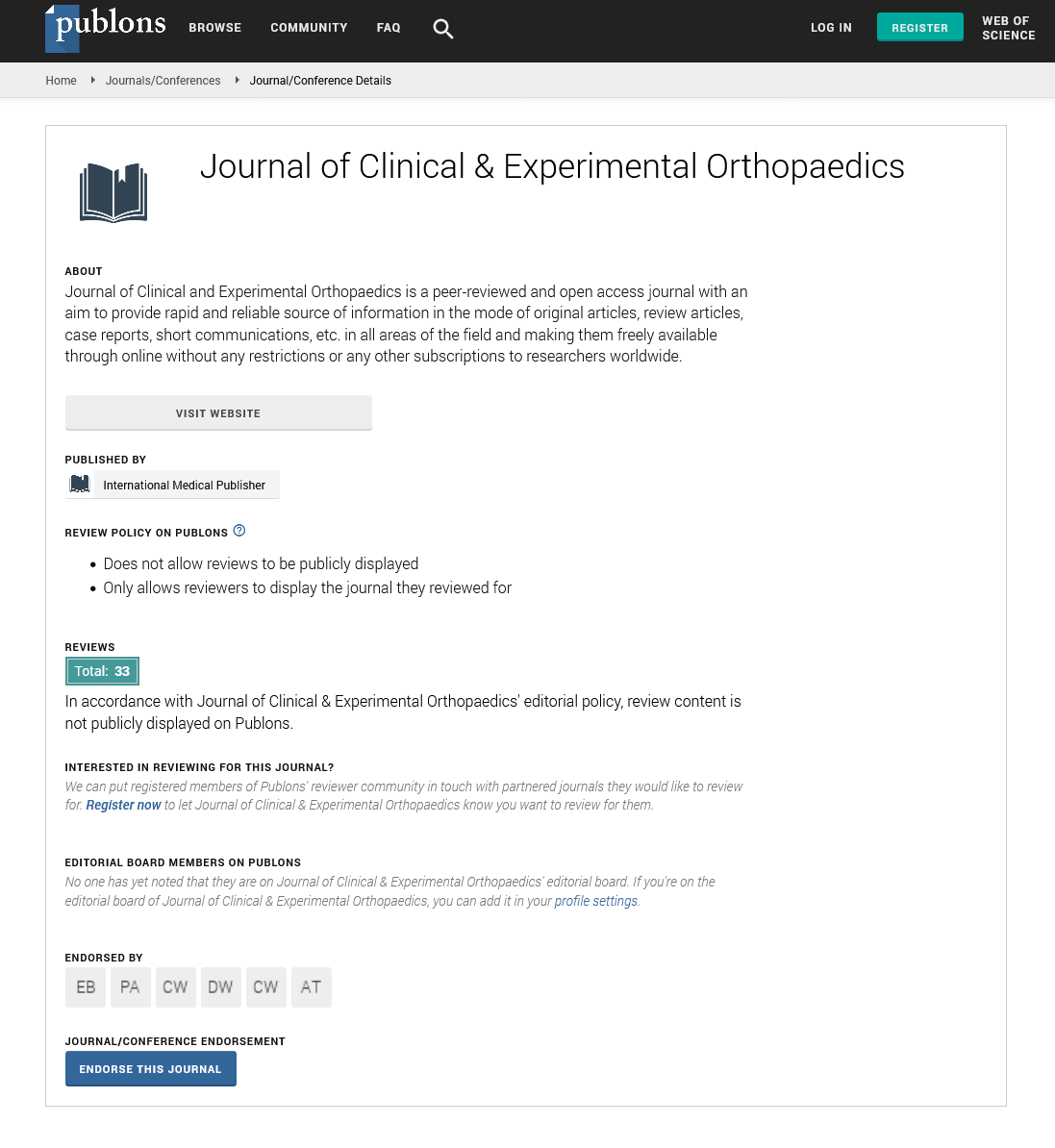ISSN : ISSN: 2471-8416
Journal of Clinical & Experimental Orthopaedics
Red flag in the physiotherapy management of bilateral carpal tunnel syndrome
European Conference on Orthopedics and Osteoporosis
November 29-30 , 2018 Amsterdam , Netherlands
Timothy O Dada
Princess Margaret Hospital, Dominica
ScientificTracks Abstracts: J Clin Exp Orthop
Abstract
Aim: The aim of this paper is to sensitize clinician (physiotherapists, orthopaedists and orthopaedic surgeons) about other condition that can closely mimic carpal tunnel syndrome and to encourage team work approach using case study of patients treated at the Department of Physiotherapy, Princess Margaret Hospital. Method: This paper focuses specifically on three different cases of diagnosed carpal tunnel syndrome referred from orthopaedic surgeons. The first case was referred for post surgical physiotherapy management while the other two cases were referred for pre-operative physiotherapy management. The screening assessment includes history taking, physical examinations, phallen's test and carpal tunnel compression test. Result: The screening assessment revealed condition other than carpal tunnel syndrome (CTS) must have been responsible for the neurological symptoms they presented (which mimic CTS). In this paper, due to specific intervention which alleviates their symptoms, vitamin B12 deficiency was suspected to be the cause of this carpal tunnel mimicked symptoms. The post-operative patient was managed symptomatically but the initial neurological symptoms persist. The other two clients were successfully screened. Vitamin B12 was recommended for the three clients and their symptoms subsequently subsided. Conclusion: Bilateral presentation of neurological symptoms that mimic carpal tunnel syndrome can be mistaken for CTS and managed as CTS. Sometimes screening for vitamin B12 deficiency can be helpful in ruling out carpal tunnel syndrome. Recommendations: It is therefore recommended that there should be proper screening of patients that are presented with bilateral neurological symptoms that mimic carpal tunnel syndrome so as to avoid ineffective utilization of procedures and intervention.
Biography
Timothy O Dada has completed his Clinical Doctorate Degree in Physical Therapy from University of Medical Science Arizona. He completed his professional competence course at ATSTILL School of Health Science, Arizona. He is presently pursuing a Master degree in Health System Administration at Rochester Institute of Technology, New York and a Law degree from University of London. He is the Head of Physiotherapy Department, Princess Margaret Hospital, the National Hospital of Commonwealth of Dominica.
E-mail: dadatisaoko@yahoo.com
Google Scholar citation report
Citations : 161
Journal of Clinical & Experimental Orthopaedics received 161 citations as per Google Scholar report
Journal of Clinical & Experimental Orthopaedics peer review process verified at publons
Abstracted/Indexed in
- Google Scholar
- China National Knowledge Infrastructure (CNKI)
- Directory of Research Journal Indexing (DRJI)
- WorldCat
- Publons
- Geneva Foundation for Medical Education and Research
- Secret Search Engine Labs
Open Access Journals
- Aquaculture & Veterinary Science
- Chemistry & Chemical Sciences
- Clinical Sciences
- Engineering
- General Science
- Genetics & Molecular Biology
- Health Care & Nursing
- Immunology & Microbiology
- Materials Science
- Mathematics & Physics
- Medical Sciences
- Neurology & Psychiatry
- Oncology & Cancer Science
- Pharmaceutical Sciences
